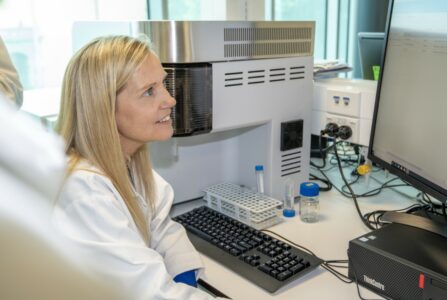
A woman suffering from the long-term effects of Covid-19 is participating in New Zealand’s first study investigating immune dysfunction’s association with Long Covid.
Kezia Jaffar (Times, September 7), a Cockle Bay resident, was living in the UK when she contracted Covid-19.
Nine months later, she is still experiencing debilitating fatigue, blurred vision, brain fog and unwavering anxiety.
Long Covid is described by the Ministry of Health (MoH) as “signs and symptoms that continue to develop after acute Covid-19”.
“No day is the same,” Jaffar said. “Some days I can walk around the block and some days I can’t leave my bed.”
Jaffar told the Times that she heard about cellular immunologist Dr Anna Brooks’ study through the Long Covid Facebook group.
Brooks’ study is aiming to identify and investigate the quality of the immune response in those identifying with Long Covid symptoms, including those who have never received confirmation of their infection.
Together with co-investigator Emeritus Professor Warren Tate, they are researching the mechanisms that may be causing the immune dysfunction.
Additionally, the study seeks to answer how understanding Long Covid can help those with Myalgic Encephalomyelitis/Chronic Fatigue Syndrome (ME/CFS) as there are striking similarities between the symptoms of the two conditions.
ANZMES, a national support organisation for ME/CFS sufferers, is providing partial funding for the research.
“Post viral conditions have largely been dismissed for decades,” Brooks said.
“There has been no avenue available for urgent funding of this research, hence we crowd funded to get it underway as fast as we could.”
Participants of the study will donate blood, some pre and post vaccination and track their symptoms via surveys.
More than 150 have signed up so far and more than 70 have donated blood, including Jaffar.
“I wanted to partake in the study so that research was able to be taken out on people living with Long Covid,” Jaffar said.
“Without a subject group this could never happen.
“Research like this makes you think about all the future sufferers you could be helping by allowing people to study what’s happening to current sufferers.”
This study, Jaffar said, is important for people to feel seen and heard in the Long Covid community and to be able to get scientific evidence to as how this happens and what can be done to combat it so “it doesn’t get as bad as it does for most”.
Tracking immune and inflammation markers of the study participants will provide answers to see if their immune response to the virus was dysfunctional and therefore, once vaccinated, will any dysfunction be restored, Brooks said.
“We want to understand whether the condition is related to a poor immune response or some other cause,” Brooks said. “No one has done these studies yet.”
Jaffar said, “I feel very excited and very grateful someone has taken on this role of researching a condition that is so new.”









